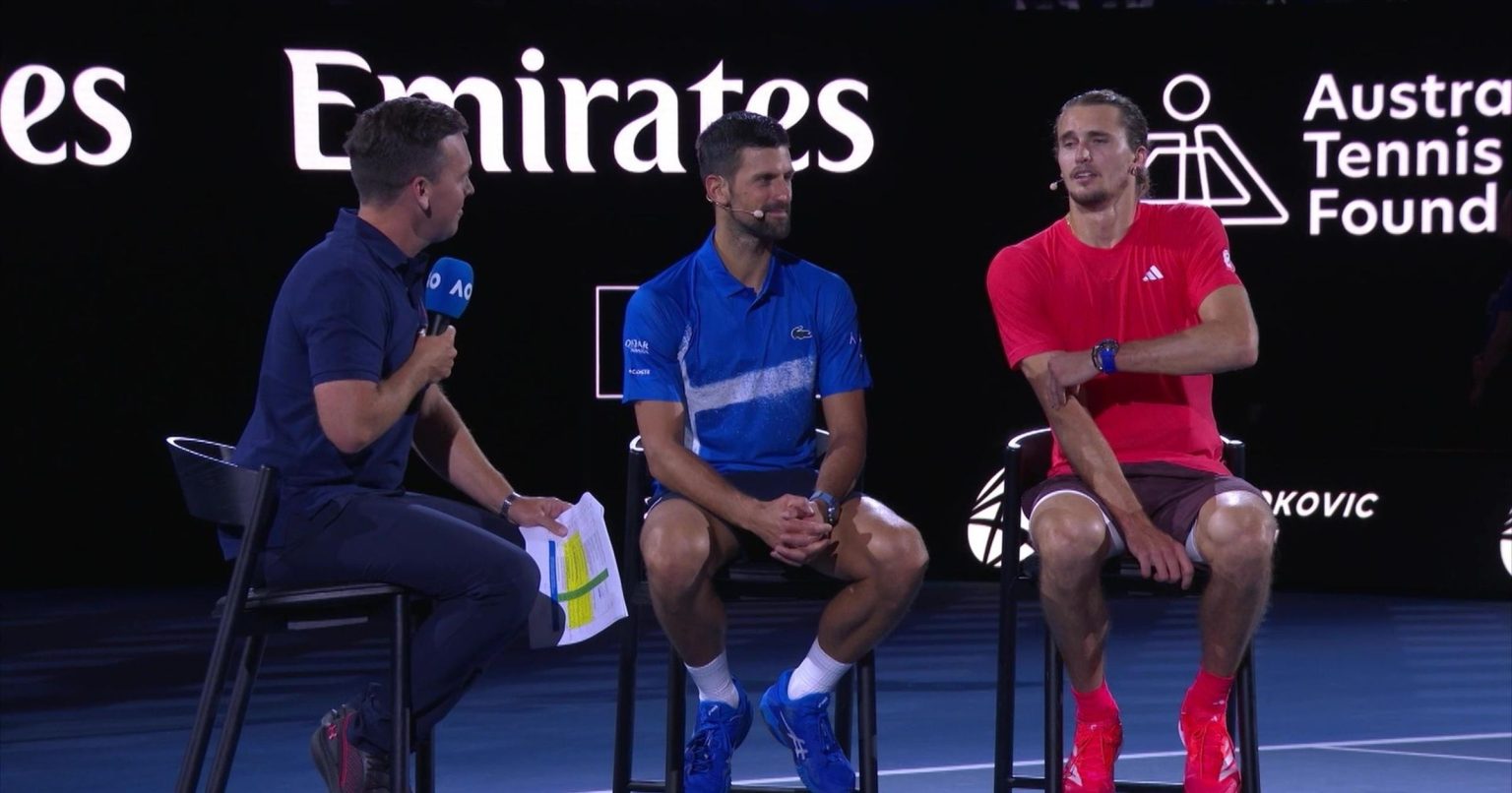The tennis world was abuzz with speculation and amusement when the rumor mill churned out the unlikely pairing of Andy Murray and Novak Djokovic as coach and player, respectively. While the rumor was quickly debunked as nothing more than a playful misunderstanding, the imagined scenario elicited a range of reactions, most notably a mock-serious expression of disappointment from Alexander Zverev. Zverev, a German professional tennis player and a contemporary rival to both Murray and Djokovic, humorously lamented the potential coaching alliance, suggesting it would further solidify Djokovic’s dominance on the court. This lighthearted response underscores the complex web of rivalries, friendships, and mutual respect that characterizes the upper echelons of professional tennis. It also highlights the intrigue and entertainment value that often accompanies off-court interactions and narratives in the sport.
Zverev’s playful dismay can be interpreted on multiple levels. Firstly, it speaks to the undeniable talent and tactical acumen of both Murray and Djokovic. Murray, a three-time Grand Slam champion and former world No. 1, possesses a deep understanding of the game, honed through years of competing at the highest level. Djokovic, widely considered one of the greatest tennis players of all time, is renowned for his exceptional court coverage, relentless baseline game, and mental fortitude. A hypothetical partnership between these two tennis titans would undoubtedly represent a formidable force, and Zverev’s feigned concern reflects a recognition of this potent combination. Furthermore, his reaction acknowledges the existing dynamic between himself and these two prominent figures, hinting at the competitive spirit and drive that fuels their respective careers.
Beyond the surface-level jest, Zverev’s comment offers a glimpse into the camaraderie and banter that often exists amongst professional tennis players. While they are fierce competitors on the court, battling for titles and rankings, many share a mutual respect and even friendship off the court. This sense of community is fostered through shared experiences, the unique pressures of professional sport, and the common pursuit of excellence. Zverev’s reaction, therefore, can be seen as a playful jab within this context, a lighthearted acknowledgment of the perceived threat while simultaneously reinforcing the bonds that connect these elite athletes.
The incident also underscores the role of media and social media in amplifying such narratives within the tennis world. The initial rumor, likely originating from a misinterpreted comment or playful speculation, gained traction through various media outlets and online platforms, quickly becoming a topic of discussion among fans and players alike. Zverev’s public response, likely made through an interview or social media post, further fueled the narrative, contributing to the overall entertainment value and generating further engagement within the tennis community. This highlights the symbiotic relationship between athletes, media, and fans in shaping the narrative and creating a sense of drama and excitement around the sport.
The humorous episode surrounding the imagined Murray-Djokovic coaching partnership serves as a microcosm of the broader dynamics within professional tennis. It showcases the intense competition, the underlying camaraderie, and the ever-present media spotlight that shapes the perceptions and experiences of the players. Zverev’s playful reaction, while seemingly insignificant on its own, offers a window into this multifaceted world, revealing the layers of rivalry, respect, and humor that coexist within the high-stakes environment of professional tennis. It also demonstrates how even seemingly mundane occurrences can be transformed into engaging narratives that capture the attention of fans and add to the overall appeal of the sport.
Finally, it is important to recognize that humor plays a significant role in navigating the pressures and intensities of professional sport. The ability to find levity and engage in lighthearted banter can serve as a valuable coping mechanism, allowing athletes to maintain perspective and manage the emotional demands of their careers. Zverev’s response, in this context, can be seen as a healthy expression of his own personality and a testament to his ability to embrace the humorous aspects of the situation. This ability to laugh at oneself and engage in playful exchanges with colleagues contributes to a more positive and enjoyable environment within the sport, fostering a sense of camaraderie and reducing the potential for undue stress and tension. It also allows fans to connect with players on a more personal level, appreciating their human side and further solidifying their engagement with the sport.


